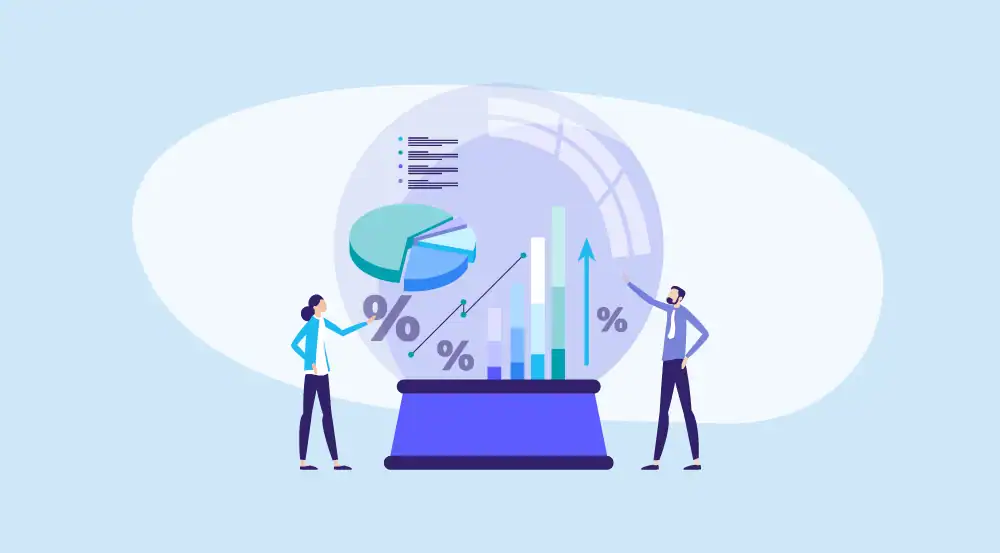As the real estate industry continues to digitize, Multiple Listing Services (MLSs) are increasingly becoming data powerhouses. At the heart of modernizing MLS ecosystems lies an often overlooked but critical piece of infrastructure: the developer portal. These platforms serve as the front door to MLS data and services, empowering third-party developers, brokerages, proptech startups, and internal teams to build, test, and deploy applications that enhance the real estate experience.
Table of Contents
ToggleIn this article, we explore the purpose, benefits, and key components of developer portals in MLS ecosystems, and why they’re essential to the industry’s digital transformation.
What Is an MLS Developer Portal?
A developer portal is a centralized, web-based platform that provides developers with the tools, documentation, and access needed to interact with an MLS’s APIs, data feeds, and services. Think of it as a self-service interface where technical users can learn how to integrate with MLS systems, request credentials, explore sandbox environments, and stay informed about updates and changes.
In MLS ecosystems, a well-designed developer portal bridges the gap between the rigid data structures of legacy systems and the agile, user-centered products that modern real estate consumers demand.
Why MLSs Need Developer Portals
Standardized Access to Data
MLSs store vast amounts of structured real estate data. Developer portals can present these data services via standardized APIs (like RESO Web API), allowing third parties to access listings, agent details, market statistics, and more in a secure, consistent manner.
Accelerated Innovation
By making it easier for external developers to experiment and build on top of MLS data, portals foster a thriving ecosystem of proptech innovation. From CRM platforms to home search apps and AI valuation tools, developer access catalyzes growth.
Operational Efficiency
Without a portal, MLS staff must handle integration questions and access requests manually. A developer portal automates much of this workflow—credential provisioning, support ticketing, documentation—saving time and reducing errors.
Compliance and Control
Portals offer fine-grained access control and logging, which helps ensure compliance with data licensing terms and regulations. MLSs can monitor usage, revoke access, and track integrations easily.
Better Developer Experience (DX)
Modern developers expect intuitive interfaces, rich documentation, code samples, and quick feedback. A portal that meets these expectations enhances the likelihood of successful integrations and positive relationships with developers.
Key Features of a Robust MLS Developer Portal
To effectively serve its purpose, an MLS developer portal should include the following components:
API Documentation
Clear, searchable, and version-controlled documentation is critical. It should include:
-
Endpoint descriptions
-
Authentication methods (OAuth, API keys)
-
Sample requests/responses
-
Error codes and handling
-
SDKs or client libraries
Interactive API Console
Letting developers test queries in a browser-based console (e.g., Swagger UI or Postman collections) helps flatten the learning curve.
Self-Service Registration
Allow developers to sign up, request sandbox or production keys, and manage credentials through a user dashboard.
Sandbox Environment
A test environment with sample data enables developers to build and validate applications without impacting live systems or violating data use restrictions.
Change Logs and Notifications
Regular updates about API changes, deprecations, and new features ensure integrations stay up to date.
Compliance Guidelines and Support
Include clear guidelines about permissible data usage, branding requirements, and compliance with RESO standards or MLS-specific rules. A support ticketing system or developer forum also helps.
Examples from the Industry
Some MLSs and real estate organizations are already leading the way:
-
RETSly (acquired by Zillow) offered a unified API layer across multiple MLSs, with a developer portal that abstracted RETS complexities.
-
Bridge Interactive (by Zillow Group) provides a developer platform that includes robust data access and compliance tools for MLSs.
-
FMLS (First MLS) offers developers a portal with access to its RESO-compliant APIs, including documentation, sandbox access, and support.
While these are promising starts, many MLSs still lack mature developer-facing platforms, creating friction in partnerships and innovation.
The Business Case for MLSs
Investing in a developer portal is not just a technical decision—it’s a strategic one. Here’s why:
-
Increased Data Licensing Revenue: Easier integration can drive demand for data access agreements.
-
Brand Extension: Becoming a platform provider enhances the MLS’s visibility in the broader tech ecosystem.
-
Member Value: Agents and brokers benefit from more integrated tools and services tailored to their workflows.
-
Future-Proofing: As NAR rules evolve and competition increases, MLSs with open, developer-friendly platforms will be better positioned to adapt.
Challenges and Considerations
Despite their value, developer portals are not plug-and-play. MLSs must consider:
-
Data governance and privacy: Ensuring data is accessed and used responsibly
-
Onboarding complexity: Balancing ease of use with necessary vetting processes
-
Legacy system integration: Bridging modern APIs with older data formats (e.g., RETS)
-
Security: Protecting credentials and sensitive property or client data
Additionally, some MLSs may need to shift their culture—from viewing data as proprietary to seeing it as a platform for collaboration and value creation.
Conclusion
In an increasingly connected real estate world, developer portals are critical enablers of innovation in MLS ecosystems. They empower developers, reduce friction, and help MLSs extend their value beyond listing syndication. As more organizations invest in API-first strategies and open platforms, developer portals will be key to transforming MLSs from isolated data silos into thriving digital hubs.
The MLSs that succeed in this transition won’t just provide data—they’ll provide infrastructure for the future of real estate.
Frequently Asked Questions
What is the primary function of a developer portal in an MLS ecosystem?
A developer portal in an MLS ecosystem serves as a centralized, web-based platform where developers can access MLS data and services through APIs. Its primary functions include:
-
Providing API documentation to help developers understand how to query and use MLS data.
-
Offering sandbox environments for testing integrations before going live.
-
Enabling credential management, such as generating API keys or OAuth tokens.
-
Supporting developers with forums, FAQs, and technical assistance.
-
Ensuring compliance with MLS data usage policies through access controls and usage monitoring.
Ultimately, the portal simplifies and streamlines third-party integration, allowing faster and more secure innovation.
Why are developer portals important for driving innovation in the real estate technology sector?
Developer portals reduce the friction for third parties—startups, brokerages, or internal dev teams—trying to integrate with MLS systems. By making standardized APIs and tools readily available, portals allow developers to:
-
Build faster: Reduce time-to-market for new products by having access to ready-to-use documentation and tools.
-
Experiment safely: Sandbox environments allow for trial-and-error development without touching live data.
-
Create diverse applications: From home search apps and CRMs to AI valuation models and analytics dashboards.
-
Promote ecosystem growth: The easier it is to build on top of an MLS platform, the more likely partners are to innovate and bring new value to agents and consumers.
By enabling these capabilities, portals become a catalyst for technological growth in the real estate industry.
What features should a modern MLS developer portal include?
A modern MLS developer portal should offer:
-
Interactive API documentation: Auto-generated docs (e.g., Swagger or Redoc) that developers can test in-browser.
-
Self-service onboarding: Registration, credential issuance, and permission requests without needing MLS staff to intervene.
-
Sandbox/test environment: A controlled space with sample or anonymized data for safe development.
-
Authentication guides: Step-by-step instructions for OAuth 2.0, API keys, or token-based access.
-
Support and feedback channels: Forums, ticketing systems, or chat support for resolving issues.
-
Change logs & versioning: Notices about API updates or deprecations to help maintain integration stability.
-
Compliance documentation: Guidelines on what’s allowed under data licenses and MLS policies.
These features ensure a smooth developer experience while maintaining security and control.
How does an MLS benefit financially from offering a developer portal?
MLSs can realize both direct and indirect financial benefits:
-
New revenue streams: Developer portals enable more organizations to license MLS data, increasing data licensing fees.
-
Operational cost savings: Automating developer support and onboarding reduces staff workload and support costs.
-
Stronger member tools: Brokerages and agents get access to a wider variety of integrated tools and platforms, increasing the perceived value of the MLS.
-
Attracting partners: Tech companies are more likely to integrate with MLSs that offer modern developer tools, potentially leading to strategic partnerships or marketplace opportunities.
While there are initial costs to building and maintaining a portal, the long-term ROI is positive due to increased integration and ecosystem engagement.













